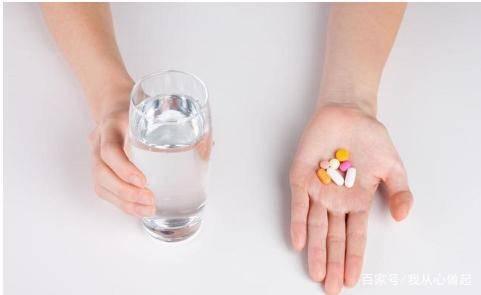Doctor Wang, the side effects of this statin are too strong. Can I take it every other day? Will the side effects be lesser this way?
Statin, as an important medication for lowering cholesterol and stabilizing plaques, plays a crucial role in the treatment of patients with high blood lipids, especially those with cardiovascular diseases. It can be said to have an irreplaceable role.
However, what concerns everyone the most is the side effects of the drug, especially when they hear that statins can cause liver damage, muscle breakdown, and other side effects. Some people even fear these side effects and refuse to take statins.
In fact, there is no need to make a big deal out of it. Any medication has more or less side effects, and statins are no exception. However, statins are not poison, and their side effects are not as terrifying as you might imagine.
Taking statin every other day does not reduce the side effects of the medication. On the contrary, the beneficial effects of statins will be affected. So why do we recommend taking statins once a day?
Even though the third-generation statin, a long-acting lipid-regulating drug, has a half-life of up to 19 hours, which can be taken at any time of the day to achieve a continuous lipid-lowering effect within 24 hours. Although the third-generation statin has a longer action time in the body compared to most other statins, it is not appropriate to take it every 48 hours.
If it is just about lowering lipids without cardiovascular diseases, then according to the actual situation, you can choose to take it every other day. For example, if a patient has high cholesterol and LDL levels that cannot be normalized through a healthy lifestyle and must take statins long term. After taking statins, when cholesterol and LDL levels have reached the standard and are below the ideal level, at this point, you can try taking half a tablet of statin or taking it every other day, then follow up for a review. If the lipid levels are still within the desired range, you can continue with half a tablet or taking it every other day. But the issue here is, taking it every other day can lead to confusion in remembering, sometimes you forget to take the medication, so it’s more convenient to take half a tablet instead.
However, for patients with confirmed cardiovascular diseases such as coronary heart disease, angina pectoris, coronary stents, coronary artery bypass grafts, cerebral infarction, it is not recommended to take it every other day. This is because when we take statins at this point, it is not just about lowering cholesterol and LDL levels but more importantly about anti-inflammatory effects, stabilizing plaques, preventing plaque rupture, and preventing blood clots.
Taking statins every other day only ensures an effective and stable drug effect for 24 hours but cannot guarantee an effective and stable effect after 48 hours. In this case, the medication cannot achieve a stable anti-inflammatory effect and stabilize plaques effectively to prevent cardiovascular diseases optimally.
When taking statins, pay attention to the following points to reduce the occurrence of side effects:
First, it is essential to be clear about whether you should take statins. This point is crucial; some people take medications without a clear diagnosis, which can only lead to side effects. Therefore, a clear diagnosis is very important.
Second, try to avoid alcohol consumption during statin treatment to reduce liver damage.
Third, ensure regular follow-up check-ups during statin treatment. After taking the medication for a month, three months, six months, and then annually, you should conduct liver function, blood sugar, creatine kinase, and lipid profile tests to detect any issues promptly.
In general, if liver function, indicated by transaminase levels exceeding three times the normal range, is observed, the dosage should be reduced or discontinued; if creatine kinase levels exceed five times the normal range, the medication should be stopped. An increase in blood sugar levels should be managed with appropriate treatment, and discontinuing the medication is not recommended.
In conclusion, statins are the fundamental drugs for controlling blood lipids, especially for anti-inflammatory effects, stabilizing plaques, preventing plaque rupture, preventing blood clots, preventing heart attacks, and preventing strokes. Don’t be intimidated by the rumors of statin side effects. If there is a clear diagnosis of a disease that requires statin intake, be sure to take it and conduct regular follow-up monitoring!


